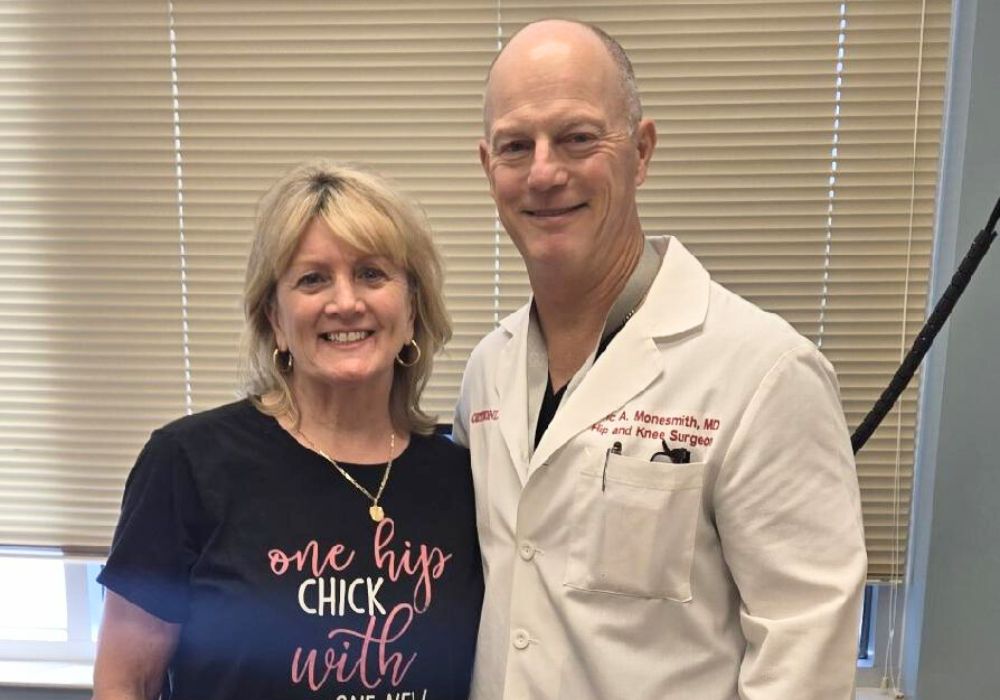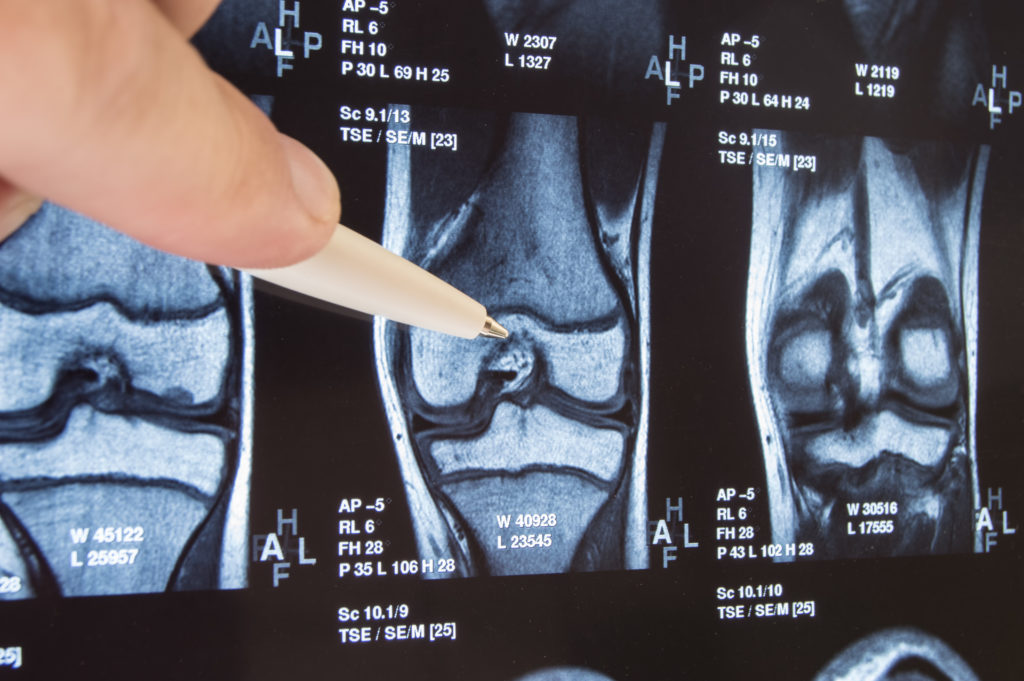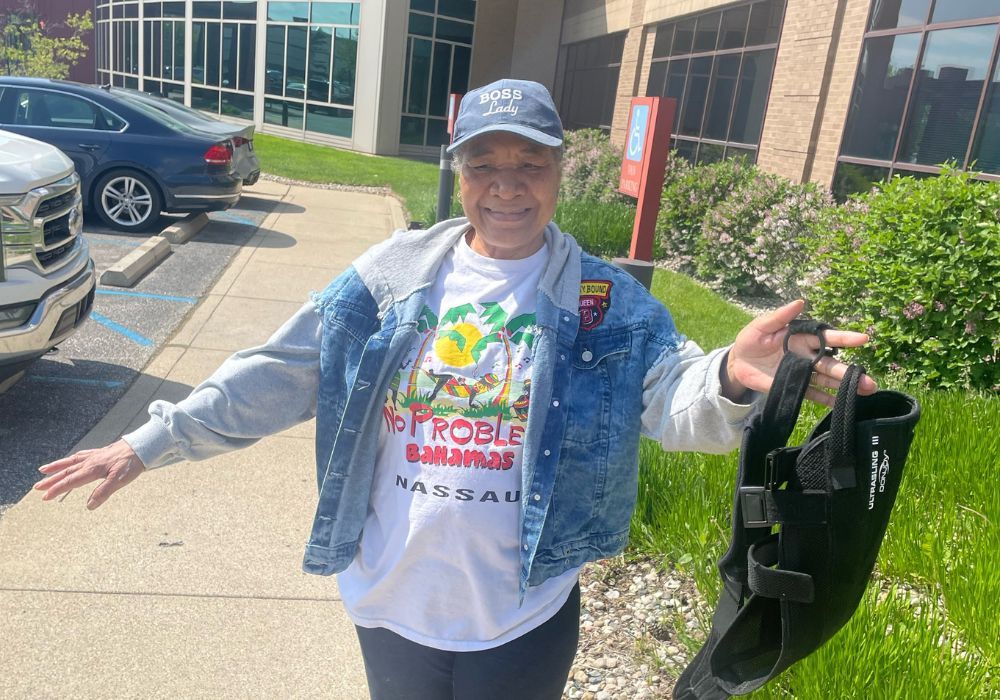THIS POST IS PART OF THE ULTIMATE GUIDE TO TOTAL KNEE REPLACEMENT
Over 1.3 million American have rheumatoid arthritis according to Healthline. Women are almost two to three times more likely to contract rheumatoid arthritis, although the exact reason for that is unknown.
Rheumatoid arthritis can be treated with conservative treatment. However, if the condition worsens, total joint surgery may be considered.
OrthoIndy total joint replacement surgeon, Dr. Frank Kolisek provides insight into what rheumatoid arthritis is, surgical treatments and who is a candidate for surgery.
What is rheumatoid arthritis?
Rheumatoid arthritis is a chronic inflammatory condition affecting your joints and your body’s tissues. It’s an autoimmune disease, which means your immune system mistakenly attacks your own body’s tissues.
The condition can affect more than just your joints. In some people, it can attack and damage their skin, lungs, heart and eyes as well.

Osteoarthritis vs. Rheumatoid Arthritis
The difference between rheumatoid arthritis and osteoarthritis lies in how the damage is done to the joint. Osteoarthritis is a deteriorative disease. This is often caused by wear and tear to your joint over time.
Rheumatoid arthritis is an autoimmune disease that attacks the healthy synovium, and when left untreated, it will destroy the cartilage at the ends of the bones, according to Dr. Kolisek.
Is rheumatoid arthritis an autoimmune disease?
Rheumatoid arthritis is an autoimmune disease. This means your immune system attacks healthy cells and tissues by mistake. When it attacks your synovium, it causes swelling and inflammation and is called rheumatoid arthritis.
This condition is common in wrists, fingers, hips and knees. Often a specialist can differentiate rheumatoid arthritis from other forms of arthritis because it affects your joints symmetrically. Other forms of arthritis are not as symmetrical and will usually affect one side of your body.
Rheumatoid Arthritis Causes
Rheumatoid arthritis is caused by your immune system attacking synovium, causing it to thicken and if not treated, this disease can eventually destroy the cartilage and bone in the joint. The specific reason your immune system behaves this way is unknown.
Rheumatoid Arthritis Symptoms
Common symptoms and signs of rheumatoid arthritis include:
- Fatigue
- Fever
- Tender, warm and swollen joints
- Joint stiffness
- Loss of appetite
Rheumatoid arthritis symptoms often begin to affect your smaller joints first, like your finger and toe joints.
If it goes untreated and continues to get worse, symptoms often spread to your larger joints, like your knees, elbows, hips and shoulders. Your symptoms will occur in the same joint on both sides of your body in most cases.
Your symptoms may not stay consistent and you may have “flares” when your symptoms get worse. You may even go into stages of “remission” where you don’t feel much pain at all.
When is rheumatoid arthritis treated by an orthopedic surgeon?
For a rheumatoid arthritis diagnosis, consult your family practice doctor or a rheumatologist to seek conservative treatment.
Conservative rheumatoid arthritis treatment may include:
- Nonsteroidal anti-inflammatory drugs (NSAIDS) like Motrin or Ibuprofen
- Corticosteroids
- Physical Therapy
- Daily movement exercises
If these nonsurgical treatments don’t relieve your pain and your rheumatoid arthritis continues to progress, you may be referred to an orthopedic surgeon and surgical treatment may be considered.
Make an appointment with an OrthoIndy total joint replacement surgeon
Rheumatoid Arthritis Surgery
According to Dr. Kolisek, when it comes to rheumatoid arthritis in your hip or knee once non-operative treatment has failed and your function is adversely affected by the failed joint, joint replacement surgery is the only treatment option that will improve your function.
“Any patient who has failed conservative treatment, who is medically healthy enough to undergo an operation and any patient whose function is deteriorating because of the diseased joint is a candidate,” Dr. Kolisek said.
When you undergo joint replacement surgery, the joint is not physically taken from your body, the pieces are just replaced to help it function the best it can without its original parts.
For example, in a knee replacement, the ends of the bones connecting your knee are resurfaced with metal caps, emulating the original bone and a piece of plastic is put between those caps, acting as the cartilage. Your original tendons, ligaments and muscles will move and stabilize your new knee just like they did in your old one.
“Patients often think that we literally cut their knee out and put in a new one and that is not correct,” Dr. Kolisek said. “I tell my patients that the cartilage on the ends of the bones is like the rind on an orange. They used to have cartilage that capped the ends of the bones, it was about the thickness of an orange rind, and this is what formed the knee joint. When you lose the cartilage from osteoarthritis or from the synovium destroying it from rheumatoid arthritis, then the bones grind together and that hurts.”
Rheumatoid arthritis recovery
Recovery varies depending on the severity of your initial pain and your activity level pre- and post-your total joint replacement surgery.
All recovery is relative to the patient. Even though patients with rheumatoid arthritis and osteoarthritis are both treated the same when it comes to the surgery, people who have rheumatoid arthritis are usually in more pain prior to surgery than people who have osteoarthritis.
Since they are used to being in pain, rheumatoid arthritis patients recover from total joint replacement surgery quicker than patients suffering from osteoarthritis.
“The pain in the first few weeks after surgery doesn’t seem as bad when you are hurting so bad prior to surgery,” Dr. Kolisek said. “It is all relative.”
To schedule an appointment with Dr. Kolisek, please call 317.884.5160 or learn more about OrthoIndy Total Joint Replacement and Dr. Kolisek.
Schedule an Appointment with a total joint replacement surgeon
Your well-being is important to us. Click the button below or call us to schedule an appointment with one of our orthopedic specialists. If your injury or condition is recent, you can walk right into one of our OrthoIndy Urgent Care locations for immediate care. For rehabilitation and physical therapy, no referral is needed to see one of our physical therapists.





